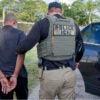The unusual question was asked to White House Press Secretary Jay Carney: “Would the President have the power to adjust Election Day?” Within hours, online forums and TV pundits began citing precedent for postponing elections, most notably the New York City mayoral election just after 9/11—a municipal election that, legally, has nothing to do with federal election timetables. Looking at U.S. history, it is clear that there is no precedent for postponing a national presidential election, even in the midst of foreign or domestic wars. Moreover, the President lacks the constitutional authority to alter or postpone a national election; the election timetable is specified by statute of Congress as authorized by the Constitution.
No Precedent in 225 Years
The 1812 presidential election took place as the United States was fighting its fourth foreign war. President James Madison sought re-election several months after declaring war on Great Britain and won by the narrowest margin in U.S. history to date. The election was inconvenient to the prosecution of the war and its outcome uncertain due to a bitterly partisan and nearly even national split, but the election was carried out on schedule. Postponing the national election was not seriously contemplated.
The Daily Signal depends on the support of readers like you. Donate now
In an even more disruptive state of war in 1864, President Abraham Lincoln acknowledged that the scheduled elections “added not a little to the strain” of the ongoing struggle, but postponement was not an option. “We cannot have free government without elections; and if the rebellion could force us to forego or postpone a national election, it might fairly claim to have already conquered and ruined us.” Lincoln further noted that keeping to schedule “demonstrated that a people’s government can sustain a national election, in the midst of a great civil war. Until now it has not been known to the world that this was a possibility.”
As disruptive as hurricanes are, wars are much more so. Considering that the United States has maintained a regular and uninterrupted national election schedule for more than two centuries, including in times of devastating war, Hurricane Sandy would seem an odd and unlikely reason to postpone the presidential election. Not unlike 1864, it is an opportunity to prove to the world that the American people’s government can sustain a national election even in the aftermath of a terrible hurricane. As such, 2012 is yet another milestone of continuity for America’s experiment in constitutional self-government.
Who Can Modify Scheduled National Elections?
Beyond the absence of precedent, it is worth asking who has the legal authority to alter a nationally scheduled election. Carney’s answer: “I don’t know the answer to that question.”
Yet, clearly, the President does not have such authority. If the November 6 election were to be postponed in all or parts of America, it must be the result of congressional legislation. Congress would have to amend the statute setting the timetable of presidential elections since 1854 (3 U.S.C. § 1) as the “Tuesday next after the first Monday in November, in every fourth year succeeding every election of a President and Vice President” or allow for a vis maior postponement of the elections in the states affected by the hurricane.
Carney should revisit his statement and thereby indicate that the White House understands its constitutional limits and the historical record on this issue. To leave this question open simply gives Americans the worry of wondering whether or not the President understands the limits of his constitutional authority on the matter of national elections.



























